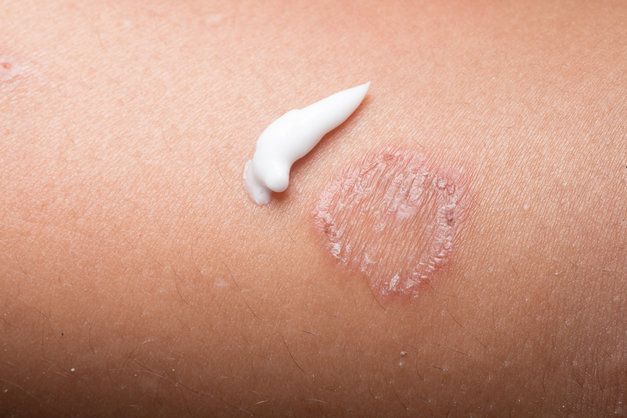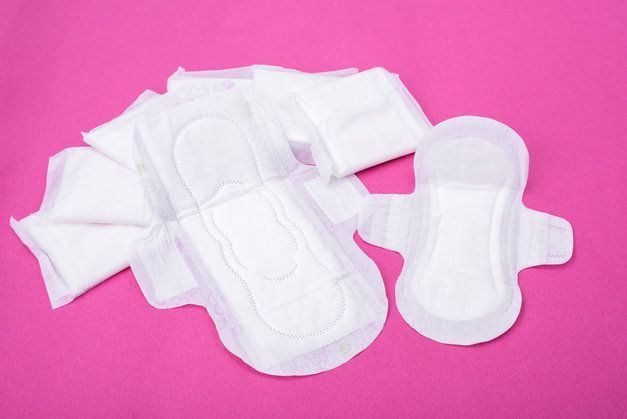When Should You Avoid Swimming?

There’s nothing more refreshing than spending a day at the pool. Whether it’s for exercise or leisure, it’s a great way to cool off and share fun moments with peers and loved ones.
However, before hitting the water, it’s important to put safety first. As water can easily become home to viruses and microbes, we must always take precautions for our own safety as well as those around us. Check out the following situations and the guidelines that go with them so you know whether you’re okay to swim or not.
Is It Okay to Swim with a Cold?

Although many people claim they feel fine while swimming with a cold, it’s best to not take any chances of exposing others. When swimming with a cold, your germs and viruses spread easily in the water, and that will likely get those around you sick as well.
Swimming can also make your cold even worse. Not only does the water make you more congested, it can also make you feel chillier than usual and can weaken your immune system even more. The best thing to do is to take it easy and rest when you have a cold.
Is It Okay to Swim with Contacts?

Swimming with contacts should be avoided to prevent bacterial contamination in your eye. Not only are you exposing yourself to eye infections, but serious sight threatening conditions such as corneal ulcers. The FDA advises that contact lenses should not be exposed to any type of water, and they should be taken out before swimming.
Is It Okay to Swim with Shingles?

Caused by the same virus that forms chickenpox, shingles develops itchy blisters that turn into scabs. Since you are contagious until the blisters have healed, you should avoid going swimming to prevent spreading the virus.
Is It Okay to Swim with Ringworm?

Ringworm is a rash caused by a fungal infection. It’s very contagious and can be passed on by direct contact and indirect contact such as touching an infected person’s clothing or being in a swimming pool with someone who is infected. Thus, if you have ringworm, you should stay out of the water.
Is It Okay to Swim with Lice?

Although contagious, the chances of lice attaching to a new host in water are rather low. Studies have shown that lice transmission is unlikely to occur in swimming pools.
Sharing towels with someone has a higher risk of transferring lice. As a precaution, it’s recommended that you wear a swim cap to avoid transferring lice or becoming a new host for lice.
Is It Okay to Swim with a Stye?

A stye forms when bacteria gets into and irritates the oil glands in your eyelids. It’s filled with pus and is contagious.
So, is it okay to swim with a stye? It all depends on the conditions and preventive measures that you take. For example, if you find a good pair of goggles that don’t leak and fit well, this will prevent contaminating the water and spreading to other swimmers around you.
But, if you have a chlorine sensitivity, you’re better off not taking any chances and avoiding the water altogether. As you can experience itchiness just by breathing inside an indoor pool, your eyes can get easily irritated. If you start rubbing your eye with a stye, you might burst the stye, which will spread the bacteria in the pool as well as to other areas of your body.
Is It Okay to Swim with Pink Eye?

According to the Centers for Disease Control and Prevention (CDC) , you should not swim in a pool with pink eye. Both the viral and bacterial infection of conjunctivitis, or pink eye, are highly contagious. Although wearing goggles might prevent the virus from spreading, it’s better not to risk it with pink eye.
Is It Okay to Swim with an Ear Infection?

Ear infections occur when bacteria or viruses get in the middle ear canal or behind the eardrum. It’s often very painful and accompanied by a fever. If under treatment, swimming with middle ear infections is fine.
Is It Okay to Swim with Swimmer’s Ear?

Swimmer’s ear is different from the common ear infection described above. It usually appears within a few days of swimming after water has stayed in the ear canal for quite some time.
The infection occurs in the outer ear canal, instead of the middle canal, and can cause pain and discomfort. Though not contagious, it’s advised that you stay out of the water in order to avoid irritating it even more.
Is It Okay to Swim with a UTI?

Often caused by being in swimming pools and wearing wet underwear or swimsuits for long periods of time, urinary tract infections (UTIs) are more common in women than men. Although UTIs are not contagious when swimming with others, it’s best to avoid being exposed to a public pool, along with wearing wet swimsuits, until your UTI heals.
Is It Okay to Swim with a Tampon?

It’s definitely fine to swim with a tampon. In fact, it’s exactly what is recommended when you go swimming while on your period.
Though the water pressure from swimming temporarily stops the blood flow, in case a bit of blood leaks out upon sneezing, laughing, or getting out of the water, tampons will have you covered. As tampons directly absorb blood flow, you can go swimming without any anxieties!
Is It Okay to Swim with a Pad?

Although you can swim with a pad, it’s not a very effective option. The pad will absorb the water instead of the blood as soon as you get in the water.
As mentioned above, since water pressure temporarily stops blood flow, you’re better off either not wearing a pad at all or using a tampon instead. Menstrual cups are also another great option.
Contact Us
To learn more about swim safety, contact SwimJim today! We provide high-quality aquatics education programs for both children and adults in New York City, Brooklyn, and Houston. Our mission is to foster a loving, fun, and safe environment for our student
The post When Should You Avoid Swimming? appeared first on Swim Jim.







